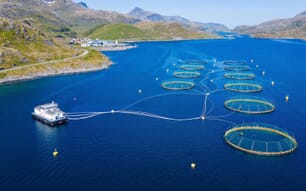This past spring, a group of ladies attended the “Women Returners Programme” put on by WiSA (Women in Scottish Aquaculture). The aim of the programme was to provide support to women either starting out in aquaculture or returning to it after a break to their careers.
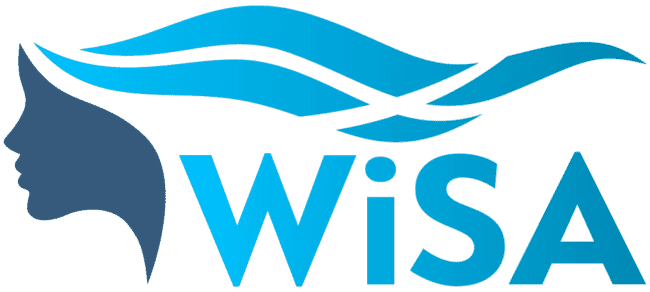
The course was delivered through a series of online tutorials, coaching and training workshops organised to help with CV development, confidence building and interview skills, as well as by providing access to a mentoring programme with individuals involved in the aquaculture industry. Participants varied from recent graduates keen to start their career, to seasoned aquaculture professionals looking to get back to the industry after a break, and even complete aquaculture novices, simply interested in opportunities that this diverse sector has to offer.
Bridie Grant
My own career path has always been focused around aquaculture with my interest in biology and fish starting at a young age.
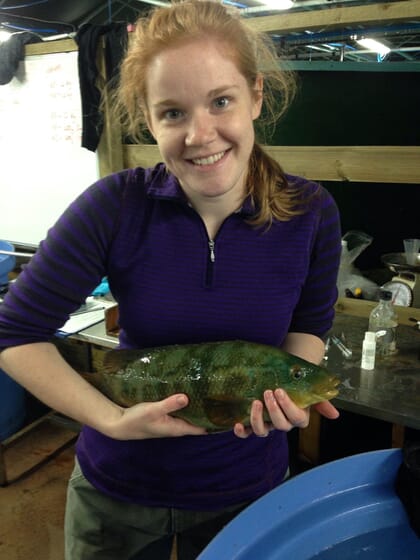
Growing up in the States, I volunteered for the New Hampshire Fish and Game and US Fish and Wildlife Service – raising, tagging, stocking and electrofishing Atlantic salmon and rainbow trout for the NH Freshwater Restocking Programme. I received my BSc with honours in aquaculture from the University of Stirling, during which I studied the effects of tank colour on growth and survival of larval Atlantic cod at the Ardtoe Marine Laboratory. After graduating, I returned to the States, working as a research assistant at the Center for Cooperative Aquaculture Research, at the University of Maine, where I was rearing larval cod as part of a breeding programme.
I then returned to Stirling University for my PhD in aquaculture reproduction and genetics, where I studied the development of broodstock management and husbandry tools for improved hatchery performance of ballan wrasse – a cleaner fish species used for lice removal on farmed Atlantic salmon. During the final stages of my PhD I took on a position at the Mowi wrasse farming facility in Machrihanish, helping to directly implement many of the tools developed throughout my research.
Up until that point, my projected path was career-driven and focused on the realm of sustainable aquaculture, but my priorities were quickly reorganised when my husband and I decided to start a family and I have been extremely fortunate to have had the opportunity to put work on pause to be a stay-at-home parent.
Now I am at the stage of rebooting my career and, like many, finding it challenging to simply pick up where I left off. The Women Returner’s Programme was suggested to me by a good friend and WiSA member and it felt as if the course was written for my exact circumstance. I found it an incredibly useful platform to get back in touch with many industry partners, to remind myself that my skills and knowledge remain relevant and that I am still very much part of the aquaculture community, despite my break from work. Meeting this unique group of women has renewed both my enthusiasm for aquaculture and confidence in myself to take the next step in my career.
Namate Sililo
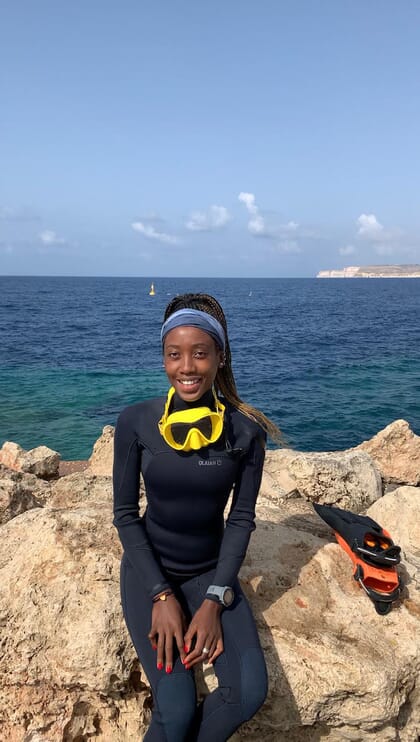
Sililo recently arrived in the aquaculture industry from a neighbouring scientific sector, having originally studied geography and French at the University of Dundee, and then followed this up with a master’s in aquatic systems science at the University of Glasgow, where she studied the impacts of ocean acidification on molluscs on Scotland’s west coast. Her keen interest in scuba diving led her to Mexico, where she became a dive instructor and coral reef research diver with Global Vision International.
Through this, she organised and delivered certification training in diving, emergency first response and biological survey methods, and moreover, she was involved in research and monitoring ecosystem health of local Caribbean target coral and fish species. Eventually promoted to dive master, she was responsible for mentoring teams of international interns throughout their research dive certifications.
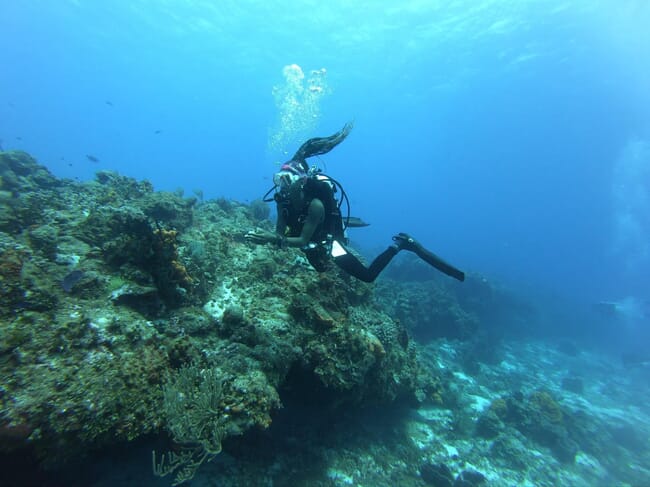
After returning to the UK, due to the onset of the pandemic, Sililo applied for various technical roles within aquaculture, stating that she was drawn to the industry by “an increasing awareness of the state of wild fish stocks which has made me believe aquaculture is a viable and sustainable protein source for the future”.
“I’m fascinated with the innovation and science behind the ability to produce seafood in a controlled manner while adhering to a vast number of environmental and ethical challenges,” she adds.
Sililo was eventually offered an entry level internship, and was left feeling deflated and slightly concerned at the prospect of starting from scratch in a new industry after coming from an established career. Luckily, she came across the Women Returner’s Programme at just the right time and hoped to gain from the course an indication of how (and if) she could transfer her current educational and professional experience into the sector and start a career in the field.
Sililo found it “informative and uplifting to be part of an amazing group of talented women intending to start a new career or go back to work” and felt clarity and confidence knowing there were other intelligent women in her position looking to start over.
She is now undertaking a three-month marine consultancy and technician internship with the AquaBioTech Group; a consulting company that undertakes a variety of aquaculture, fisheries and aquatic environmental projects. Based in the marine department, a typical day can consist of anything from scuba diving to survey benthic habitats, to using drones for aerial surveys, and of course data analysis and report writing. After her internship, Sililo hopes to stay on and progress within the company and is thrilled to be able to directly use her master’s degree for the job, as well as being able to enjoy her passion for diving while at work.
Her advice for women interested in joining the aquaculture sector is to “carry out research on the various roles available in the sector because there will definitely be a position to suit your skills and do not give up on submitting application forms – someone will eventually give you a chance.”
Charlotte Bolton
Bolton started her academic career studying agriculture and animal science at Harper Adams University, receiving a first class honours as well as an award for her contributions to neonatal Holstein heifer calf research.
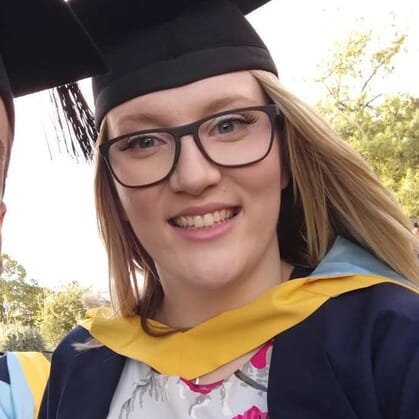
This had the potential to set her up on a solid career path in agriculture, but she moved into aquaculture after one of her final year modules in animal production science. She then received a scholarship for a master’s degree in aquaculture at Harper Adams, where she studied the effect of alternative dietary protein sources on growth in rainbow trout. Bolton graduated with a distinction and her sights set firmly on a career in aquaculture, stating “the aquaculture industry is progressive and works closely with academia to continually grow and develop” as one of the reasons she was drawn to the sector.
Now in the final year of her PhD, Bolton says a typical day can consist of anything from lab work and sampling to statistical analysis or writing. Her favourite part of her research on circadian rhythmicity is that it’s “helping to contribute to the fundamental understanding of an important mechanism which influences many vital functions in salmonids”.
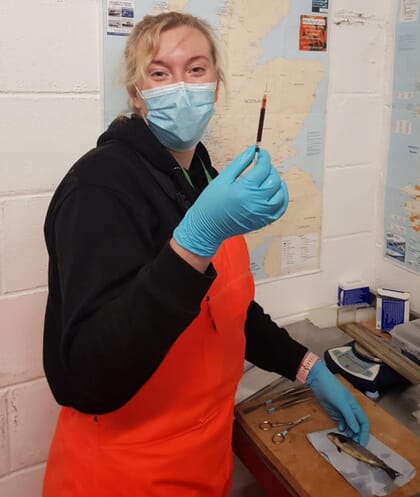
Being relatively new to aquaculture, Bolton was aware that she didn’t have the same networking capacity that she had built up in agriculture, and used the Women’s Returners programme as a platform to surround herself with likeminded individuals, stating that “the female-only aspect was great because, even if you didn’t have the confidence in yourself, having conversations with different women you could share in their experiences and knowledge and I was left feeling much more confident to be able to apply myself to whatever I put my mind to.”
When discussing the challenges faced while working in the aquaculture industry, she remarks that, “although not only specific to this industry, it’s often difficult to balance career and personal aspirations, especially as a female”.
“As a young woman at the start of her career, it can be daunting if you have a career path in mind, but also want to have a family, as it often feels like you’re forced to pick one or the other, when in reality you can have both and there’s not just one way to do it,” she adds.
This was where Bolton found the Women Returners Programme particularly useful, as she was surrounded by multiple women who have families – all at different stages of their careers – who have made it work in their own circumstance. Bolton’s advice to other women looking to join the aquaculture sector is that, “there is always the ability to learn and develop new skills, no matter what stage you’re at and if you never try you’ll never know – just go for it!”
Dr Mary Fraser, Head of Skills & Talent at the Sustainable Aquaculture Innovation Centre (SAIC) and WiSA Secretary, said, “SAIC and WiSA are delighted that we were able to help progress the careers of these talented women through the Women Returners Programme. We are now preparing to run the programme for the second time, and we’re interested in hearing from women based in Scotland who are over 25 and have been unemployed for the last six months or more, and who are looking to return to work!”
What the future has in store for the three of us remains to be seen, but this is an exciting time to be a part of the growing aquaculture sector and there is certainly no shortage of enthusiastic up-and-coming women who are keen to be involved in its growth.




